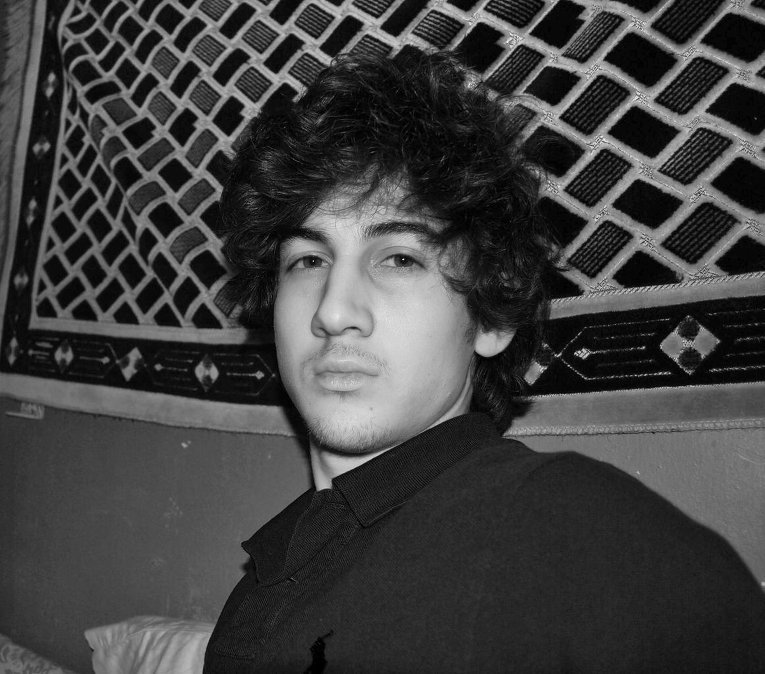MOSCOW, March 3 (RAPSI, Ingrid Burke) – Arguing that special restrictions should remain in place against Boston Marathon bombing suspect Dzhokhar Tsarnaev, US prosecutors emphasized a detrimental remark that the defendant allegedly made during a visit with his sister in the presence of an FBI officer.
A prosecution motion filed Friday notes: “In seeking to control the government – as opposed to their client – the defense relies almost exclusively upon the issue of mitigation. In doing so, they claim that the mere presence of an investigator during a social visits [sic.] turns everything said during that visit into protected work-product.”
US Attorney General Eric Holder issued a memo August 27 imposing against Tsarnaev a variety of restrictions referred to as Special Administrative Measures (SAMs). Among the restrictions imposed against the defendant were several targeting his interactions with the defense team, and several targeting his communications with others.
This latter category includes, among other things, restrictions on group prayer and on non-legal communications with individuals outside of his immediate family.
In late February, Tsarnaev’s defense team moved to vacate all the (SAMs), complaining of “FBI monitoring” and efforts by prison staff to screen certain defense materials.
Prosecutors note in their Friday motion that Tsarnaev is permitted to receive visits from members of his immediate family. However, pursuant to the SAMs, these visits must be monitored by the FBI.
As described in the motion, “The monitoring allows such visits to be analyzed for indications that the visit is being used to pass messages soliciting or encouraging acts of violence or other crimes, or to otherwise circumvent the SAMs.”
According to the motion, when an investigator with the Federal Defenders office began to explain the rationale underpinning the SAMs to Tsarnaev’s sister, Tsarnaev made a comment to his own detriment.
“It is the government’s belief that this comment is the driving force behind the [defense motion to vacate the SAMs]. The motion has nothing to do with the SAMs and everything to do with the fact that Tsarnaev, despite the presence of an FBI agent and an employee of the Federal Public Defender, was unable to temper his remarks and made a statement to his detriment which was overheard by the agent,” prosecutors assert.
Tsarnaev’s defense team filed a motion to vacate the SAMs in October, challenging the “extraordinary and severe restrictions,” on various bases.
The motion is still pending, though prosecutors lifted certain of the restrictions in November, expanding both the list of individuals that are entitled to disseminate the contents of Tsarnaev’s communication to third parties, and the list of pre-cleared individuals permitted to meet with the defendant unaccompanied.
A memo filed by the defense team in February stated that the remaining SAMs continue to significantly impact its work, stating: “the defense is encountering obstacles related to FBI monitoring [redacted] and [Federal Bureau of Prisons (BOP)] screening of materials that defense counsel need to review with the defendant. These obstacles thwart preparation of imported parts of the defense case in mitigation and also threaten the integrity of attorney work product.”
An entire two-page section of the motion entitled “FBI Monitoring” was redacted.
On the afternoon of April 15, two explosions occurred near the finish line of the Boston Marathon. IEDs devised from pressure cookers, low explosive powder, shrapnel, adhesive, and other materials were hidden in backpacks that were then placed near metal barricades in areas packed with hundreds of spectators.
According to a related indictment, “Each explosion killed at least one person, maimed, burned and wounded scores of others, and damaged public and private property, including the streets, sidewalk, barriers, and property owned by people and businesses in the locations where the explosions occurred.”
Tsarnaev was arrested following a dramatic manhunt, the events of which killed his brother and co-suspect Tamerlan, and claimed the life of an MIT Police Officer Sean Collier. He was charged in a criminal complaint dated April 21 with the use of a weapon of mass destruction and malicious destruction of property resulting in death.
Then on June 27, a federal grand jury returned a 30-count indictment against Dhzokhar, charging him with a plethora of charges related to the bombings and the MIT officer’s death.
At an arraignment hearing on July 10, Dzhokhar pleaded not guilty to all charges pending against him. US prosecutors filed their notice of intent to pursue the death penalty against Tsarnaev on January 30.
In addition to asserting various statutory threshold findings that they argue justify the decision to pursue the death penalty against Tsarnaev, prosecutors advanced a variety of aggravating factors contributing to the decision, ranging from the vulnerability of the Boston Marathon bombing’s youngest victim, to Tsarnaev’s apparent lack of remorse.



